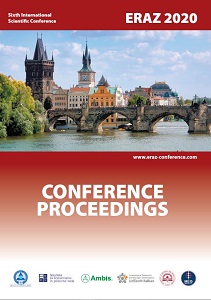FINANCIAL CRISES AND STRUCTURAL CHARACTERISTICS OF THE ECONOMY
FINANCIAL CRISES AND STRUCTURAL CHARACTERISTICS OF THE ECONOMY
Author(s): Ana Radulovic
Subject(s): Social Sciences, National Economy, Financial Markets
Published by: Udruženje ekonomista i menadžera Balkana
Keywords: Financial crises; Structure; Economy.
Summary/Abstract: Economic structures are a major cause of long-term growth or stagnation. Different economic structures have different ranges of structural learning, innovation, and different effects on income distribution, which are key determinants of economic performance. Through theory about economic structures it is explained why institutions work differently in space and time. This paper shows using a case study in the United States, that the source of recent financial crises rests on the structural characteristics of the economy. Constant deindustrialization is increasing inequality, and a debt-intensive credit boom has emerged to offset the deflationary effects of this structural change. The strong application of the austerity system in Europe and other parts of the world, even after the evidence points to less frugal policies, illustrates the theory of power it has over public policy. The economic structure should be put at the center of analysis, to better understand the economic changes, income disparities and differences in the dynamics of political economy through time and space. This paper provides a critical overview of the rapidly developing comparative studies of institutions and economic performance, with an emphasis on its analytical and political implications. The paper tries to identify some conceptual gaps in the literature on economic growth policy. Emphasis is placed on the contrasting experiences of East Asia and Latin America. This paper argues that the future investments in this field should be based on rigorous conceptual difference between the rules of the game and the game, and between the political and institutional, embedded in the concept of management. It also emphasizes the importance of a serious understanding of the endogenous and distributive nature of institutions and steps beyond the narrow approach of property law relations in management and development. By providing insights from the political channels through which institutions affect economic performance, this paper aims to contribute to the consolidation of theoretically based, empirically based and relevant to policy research on political and institutional foundations of growth and prosperity.
Book: ERAZ 2020 / 6 - Knowledge-Based Sustainable Development - CONFERENCE PROCEEDINGS
- Page Range: 99-103
- Page Count: 5
- Publication Year: 2020
- Language: English
- Content File-PDF

